Call for Paper
Workshop In conjunction with CARLA 2025
Energy Efficiency and Sustainability in AI, HPC, and Quantum Computing

High-performance computing (HPC), artificial intelligence (AI), and quantum computing (QC) are essential tools for accelerating scientific discovery, engineering innovation, and decision-making across disciplines. From climate modeling and genomics over large-scale simulations and AI-driven analytics to quantum-enhanced simulations, these technologies continue to push the boundaries of what is computationally possible. However, the rapid growth of compute-intensive workloads has led to a dramatic rise in energy consumption, raising serious concerns around operational costs, infrastructure demands, and environmental sustainability.
These challenges are particularly pressing in Latin America, where the HPC and AI ecosystem is advancing rapidly, yet must operate within unique regional constraints—including higher electricity costs, limited cooling infrastructure, and sustainability priorities driven by environmental, social, and economic factors. As such, energy efficiency is not just a technical goal, but a strategic imperative for ensuring the long-term viability and accessibility of high-performance digital technologies in the region.
The “Energy Efficiency and Sustainability in AI, HPC, and Quantum Computing” workshop at CARLA 2025 seeks to address this critical need by providing a dedicated forum for sharing knowledge, strategies, and best practices related to sustainable computing. It aims to catalyze innovation through dialogue among system architects, application developers, hardware and software researchers, datacenter operators, and policy makers.
The workshop will explore both foundational and applied aspects of energy-aware computing, including novel algorithms and architectures, software-hardware co-optimization, real-world monitoring and tuning approaches, and institutional or policy-level solutions. Special emphasis will be placed on case studies, experiences, and collaborative efforts originating in or applicable to the Latin American context.
By fostering a regional and international community focused on sustainability in HPC and AI, the workshop aspires to build bridges between emerging research and practical implementation—ensuring that performance, energy efficiency, and social responsibility evolve hand in hand.
Topics of Interest
We invite submissions on (but not limited to) the following themes:
- Energy-efficient algorithms and AI models
- Scheduling and workload management for power efficiency
- Hardware-software co-design for energy savings
- Low-power and heterogeneous computing architectures
- Monitoring and modeling energy consumption in HPC/AI
- Renewable energy integration into data centers
- Energy-aware data center design and cooling strategies
- Case studies from Latin American HPC centers or AI infrastructures
- Policy and educational frameworks for sustainable computing
- Energy-efficient methods for quantum computing
Submission Deadline
July 28th, 2025
Final Extension
Notification
August 8th, 2025
WORKSHOP DATE
September 23rd, 2025
CAMERA READY
to be announced
Paper Submission
Submission Guidelines
- Guidelines: https://revistas.usfq.edu.ec/index.php/avances/about/submissions (Change language at end of webpage)
- Submission Types: Full research papers, experience reports, or position papers
- Page Limit: Minimum 6 / Maximum 15 pages (including references)
- Language: English
- Format: Microsoft Word or LaTeX using the ACI template
- ACI Submission Info: https://revistas.usfq.edu.ec/index.php/avances/about/submissions
- Review Process: Double-blind peer review
- Submission Portal: https://meteor.springer.com/carla2025
- Select Track: “Workshop: Energy Efficiency and Sustainability in AI, HPC, and Quantum Computing”
All accepted papers will be presented during the workshop and published in the CARLA 2025 Workshop Proceedings (Avances en Ciencias e Ingeniería (ACI)).
Policy on Originality and Generative AI Use
Submissions must be original, not under review elsewhere, and must comply with CARLA and Springer policies. The use of generative AI tools (e.g., ChatGPT, GitHub Copilot) is permitted only for improving language clarity—not for producing scientific content or experimental results. Any AI assistance must be disclosed in the final manuscript.
Plagiarism and self-plagiarism will result in rejection.
PROCEEDINGS
All accepted papers will be presented during the workshop and published in the CARLA 2025 Workshop Proceedings (Avances en Ciencias e Ingeniería (ACI)).
